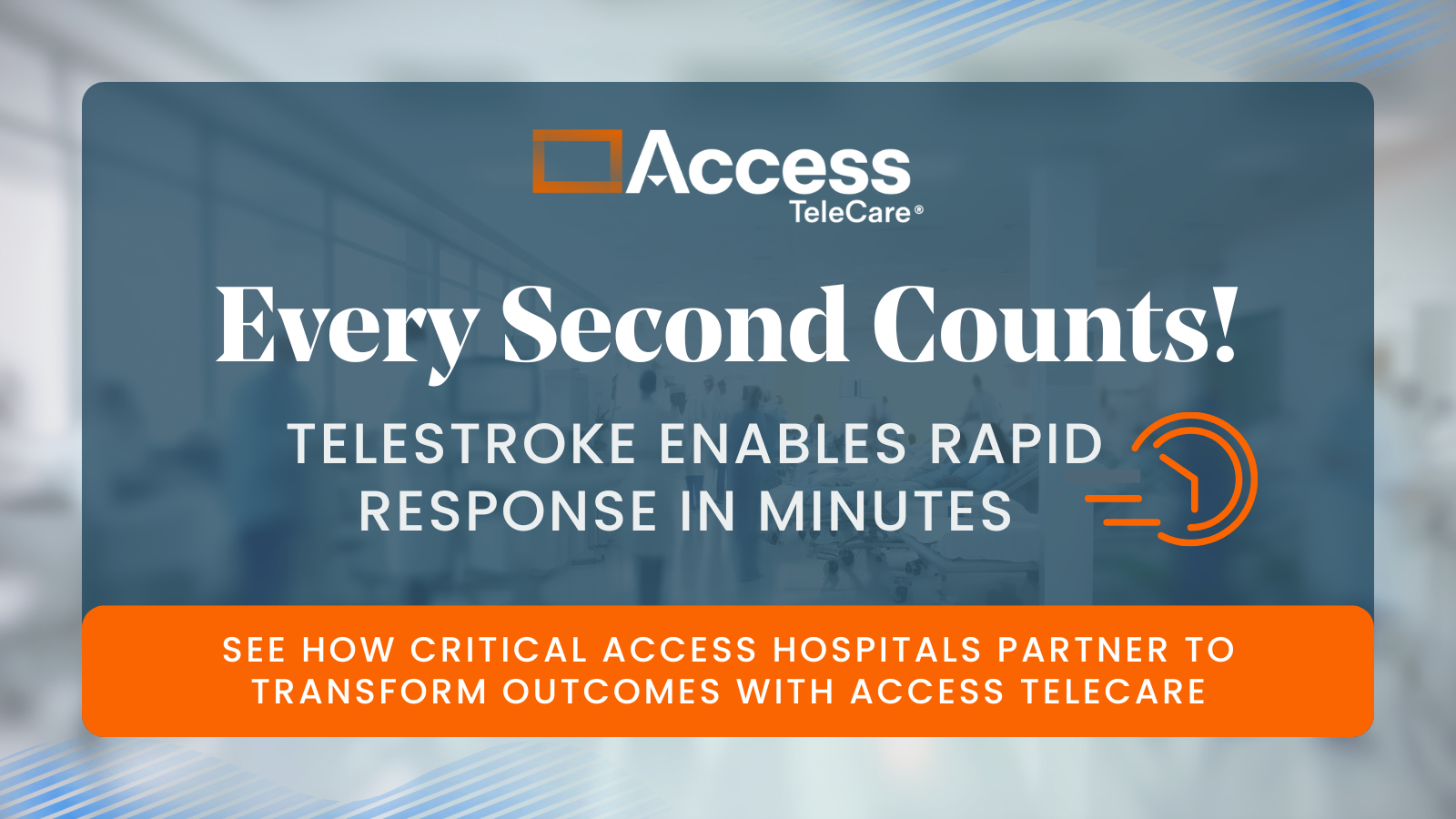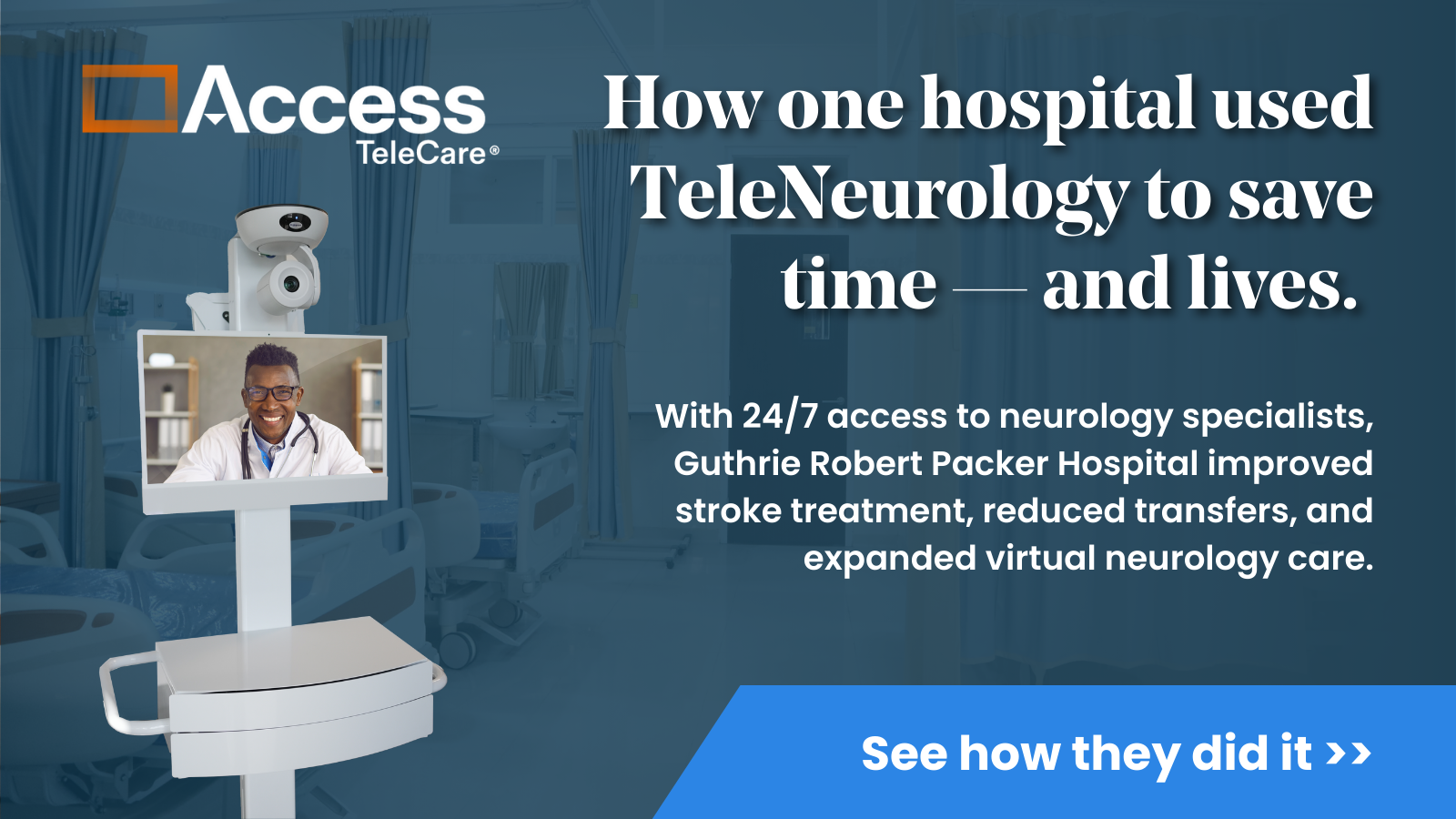While neurosurgery may not be on most people’s list of specialties ready-made for telemedicine, Access TeleCare is changing that.
TeleNeurology is one of Access TeleCare’s longest-running teleMedicine service lines. Providing more than 7,000 teleNeurology consults each month to care settings across most state lines, Access TeleCare is the country’s largest provider of teleNeurology services and solutions to U.S. hospitals. With the addition of teleNeurosurgery services, Access TeleCare has broadened the reach of a surgical expertise that historically has been centralized and inaccessible to many healthcare communities.
One of the ways the teleNeurosurgery addition can help hospitals and their patients is by appropriately supporting the local retention of patients experiencing an acute ischemic stroke and providing neurosurgical care guidance for clinical decision-making without having to transfer these patients to a higher-level facility.
How teleNeurosurgery Consultation Increases Access to Care
With an Access TeleCare teleNeurology program that includes teleNeurosurgery consultation, hospitals can both optimize the use and delivery of IV thrombolytics in patients with acute ischemic stroke and reduce unnecessary transfers of these patients in the post-thrombolytic setting. Having a teleNeurosurgeon who can consult with the patient and treating clinicians, and attest to the low likelihood of the need for surgical intervention in certain settings, can help on-site teams feel more confident keeping appropriate post-thrombolytics patients in-house. This is most significantly impactful to the patients’ care experience by limiting risk exposure from transfer processes unlikely to have associated benefit.
Making the Case for teleNeurosurgeons
Hospitals without a local neurosurgeon presence may transfer neurology patients for neurosurgical evaluations out of an abundance of caution. One large scale study showed that at least 57.5 percent of patients transferred specifically for cranial neurosurgery do not actually require or receive neurosurgical intervention, while a separate study showed only 13 percent of acute spinal neurosurgical referrals underwent neurosurgical intervention. In addition, for facilities that transfer all post-thrombolytic stroke cases for neurosurgical availability, data suggests only 0.175 percent require neurosurgical intervention following IV thrombolytics. TeleNeurosurgeons can assist in identification of those patients who are most likely to benefit from a transfer to a different care setting.
With Access TeleCare’s teleNeurosurgeons who consult with on-site treating clinicians, hospitals can more effectively triage complex neurological conditions and appropriately reduce outbound transfers – keeping patients in their local care communities when possible, reducing the load for the EMS transport system, and ensuring timely availability of appropriate care for emergent patients needing transport and transfer.
Expanding the Hospital’s neurosurgery Reach
With fewer than 3,800 board certified neurosurgeons practicing in the U.S., Access TeleCare’s teleNeurosurgeons offer solutions for virtually every hospital, regardless of local neurosurgical presence. Patients have come to expect access to providers when a need arises. For hospitals large and small, our partnership means helping patients with the care they expect and the quality that comes with clinical excellence.
Read more about our research and how teleNeurosurgery consultation can improve timely access to effective treatment for patients experiencing acute ischemic stroke.
Contact us for more information.








